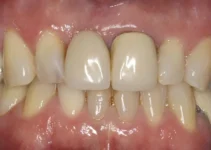While PRGF (Plasma Rich in Growth Factors) therapy has proven highly effective in various dental procedures, certain medical conditions may prevent its use. Understanding these contraindications is crucial for patient safety and treatment success. Patients with blood disorders, active infections, cancer, or those taking anticoagulant medications might not be suitable candidates for PRGF treatment. Additionally, pregnant women, individuals with autoimmune diseases, and those with platelet dysfunction should carefully evaluate their eligibility with a healthcare professional before proceeding with this regenerative therapy.
Understanding PRGF Treatment Contraindications
Plasma Rich in Growth Factors (PRGF) has revolutionized regenerative medicine, particularly in dental procedures. However, understanding its contraindications and potential risks is crucial for ensuring patient safety and optimal treatment outcomes. Medical professionals must carefully evaluate each patient’s condition before proceeding with PRGF treatment. The significance of proper patient screening cannot be overstated, as certain medical conditions and medications may interfere with PRGF effectiveness or pose risks. Key considerations include blood disorders, active infections, and certain autoimmune conditions. Recent studies have demonstrated that careful patient selection can significantly reduce complications and enhance treatment success rates.
Healthcare providers must conduct thorough medical assessments and maintain detailed documentation of patient histories. This includes evaluating factors such as:
- Current medications, especially blood thinners
- Systemic diseases affecting blood composition
- Recent infections or inflammatory conditions
- History of bleeding disorders
- Autoimmune conditions affecting platelet function
What is PRGF Treatment
PRGF treatment represents an advanced autologous therapy that utilizes the patient’s own blood components to stimulate healing and tissue regeneration. This innovative approach involves extracting specific proteins and growth factors from the patient’s blood plasma, which are then processed and applied to the treatment area.
The treatment has gained significant recognition in various medical fields, particularly in dental implantology and oral surgery. Clinical studies have shown that PRGF can accelerate healing times by up to 50% compared to traditional treatment methods, while also reducing post-operative discomfort and inflammation.
The versatility of PRGF treatment extends to multiple applications, including:
- Post-extraction socket preservation
- Implant surgery enhancement
- Bone regeneration procedures
- Soft tissue healing optimization
Components of PRGF
PRGF contains a rich concentration of essential growth factors and proteins that play vital roles in tissue regeneration. The primary components include platelet-derived growth factor (PDGF), transforming growth factor-beta (TGF-β), and vascular endothelial growth factor (VEGF), among others.
These bioactive proteins work synergistically to promote:
- Enhanced cell proliferation and differentiation
- Accelerated tissue regeneration
- Improved angiogenesis
- Reduced inflammation
The unique composition of PRGF is carefully controlled through a standardized preparation protocol that ensures optimal concentration of growth factors while eliminating undesirable components that might interfere with healing. This precise balance is crucial for achieving predictable clinical outcomes.
If you found this information valuable, we encourage you to explore our other articles about advanced dental procedures and regenerative treatments. Our comprehensive resource library covers various aspects of modern dental techniques and their applications in clinical practice.
Absolute Contraindications
When considering PRGF (Plasma Rich in Growth Factors) treatment, certain absolute contraindications must be carefully evaluated to ensure patient safety. Clinical studies have demonstrated that specific medical conditions can significantly increase risks or compromise treatment effectiveness. Understanding these contraindications is crucial for both practitioners and patients.
The primary absolute contraindications include severe blood disorders, active cancer, metastatic disease, and specific coagulation abnormalities. Research indicates that these conditions can interfere with the fundamental mechanisms of PRGF or potentially exacerbate existing health issues.
Blood-Related Disorders
Patients with blood-related disorders present unique challenges for PRGF treatment. Hematological conditions can significantly impact the quality and quantity of platelets available for PRGF preparation, potentially compromising treatment outcomes. Studies have shown that certain blood disorders can affect both platelet function and plasma composition.
Key blood-related contraindications include:
- Severe thrombocytopenia
- Chronic blood diseases
- Critical platelet dysfunction syndromes
- Severe anemia (Hemoglobin < 10g/dL)
Platelet Disorders
Platelet disorders pose significant challenges for PRGF treatment success. Conditions such as thrombocytopenia and platelet dysfunction syndromes directly impact the quality of PRGF preparation. Research indicates that patients with platelet counts below 100,000/μL may not achieve adequate growth factor concentrations in their PRGF preparations.
Clinical studies have identified specific platelet disorders that absolutely contraindicate PRGF treatment:
- Bernard-Soulier syndrome
- Glanzmann thrombasthenia
- Severe immune thrombocytopenia
Coagulation Problems
Patients with significant coagulation disorders face increased risks during PRGF procedures. These conditions can affect both the preparation process and the therapeutic effectiveness of the treatment. Research has shown that abnormal coagulation parameters can significantly impact PRGF quality and safety.
Critical coagulation issues that contraindicate PRGF include:
- Severe von Willebrand disease
- Hemophilia A and B
- Patients on high-dose anticoagulation therapy
Cancer and Metastatic Disease
Active cancer and metastatic disease represent absolute contraindications for PRGF treatment due to the potential stimulation of cancer cell growth. Growth factors present in PRGF could theoretically promote tumor progression or metastasis, making the treatment unsuitable for patients with active malignancies. Research has demonstrated that growth factors can influence cancer cell behavior through various mechanisms, including:
- Enhanced cell proliferation
- Increased angiogenesis
- Potential activation of dormant cancer cells
Cancer-Related Risks
The specific risks associated with PRGF treatment in cancer patients are primarily related to the bioactive properties of growth factors. Studies have shown that growth factors can potentially stimulate both healthy tissue regeneration and cancer cell proliferation, making it impossible to selectively target only beneficial healing processes.
To learn more about PRGF treatment safety and other important considerations, we encourage you to explore our related articles on treatment protocols and patient screening guidelines. Understanding these contraindications is essential for ensuring optimal patient outcomes and safety in regenerative medicine procedures.
Relative Contraindications
When considering PRGF (Plasma Rich in Growth Factors) treatment, healthcare providers must carefully evaluate certain conditions that, while not absolute contraindications, require thorough assessment and potential modifications to the treatment protocol. These relative contraindications can impact the effectiveness of PRGF therapy and may require additional precautions.
Research has shown that while PRGF remains a safe treatment option for most patients, certain factors can influence its success rate and healing outcomes. Studies indicate that proper patient screening and risk assessment are crucial for optimal results, with some conditions requiring modified protocols or enhanced monitoring during treatment.
Chronic Medical Conditions
Several chronic medical conditions can affect the quality and effectiveness of PRGF treatment. These conditions may influence platelet function, growth factor production, or the body’s healing response. Healthcare providers should carefully evaluate patients with:
- Diabetes mellitus (particularly uncontrolled)
- Chronic liver disease
- Cardiovascular conditions
- Thyroid disorders
- Chronic inflammatory conditions
Autoimmune Diseases
Patients with autoimmune conditions require special consideration before PRGF treatment. These conditions can affect the immune response and potentially impact the healing process. Systemic lupus erythematosus (SLE) and rheumatoid arthritis patients may experience varied responses to PRGF therapy.
Clinical studies have demonstrated that while autoimmune conditions don’t necessarily preclude PRGF treatment, they may require modified protocols and closer monitoring during the healing phase. The inflammatory nature of these conditions can influence the concentration and activity of growth factors.
Metabolic Disorders
Metabolic disorders can significantly impact the healing process and PRGF effectiveness. Diabetes mellitus, in particular, requires careful management as it can affect platelet function and tissue regeneration capacity. Patients with metabolic conditions may need additional monitoring and possibly adjusted treatment protocols.
Research indicates that optimal metabolic control before and during PRGF treatment can significantly improve outcomes. Healthcare providers should assess recent laboratory values and ensure proper disease management before proceeding with treatment.
Medication Interactions
Various medications can interact with or affect the efficacy of PRGF treatment. Understanding these interactions is crucial for treatment planning and outcome prediction. Certain medications may need to be temporarily adjusted or discontinued under medical supervision.
Blood Thinners
Anticoagulant medications require special attention when considering PRGF treatment. Warfarin, heparin, and other blood thinners can affect bleeding risk and platelet function. Studies have shown that careful management of anticoagulation therapy is essential for optimal PRGF outcomes.
Protocols typically require coordination with the patient’s primary physician to manage anticoagulation levels safely during treatment. Some patients may need temporary medication adjustments or additional precautions during the procedure.
NSAIDs and Other Medications
Non-steroidal anti-inflammatory drugs (NSAIDs) can impact platelet function and potentially affect PRGF efficacy. Research indicates that temporary discontinuation of these medications may be necessary before treatment, following appropriate medical guidance.
Other medications that may require consideration include:
- Corticosteroids
- Immunosuppressants
- Certain antibiotics
- Chemotherapy drugs
For more detailed information about specific conditions and their impact on dental treatments, we encourage you to explore our other articles on regenerative dentistry and personalized medicine. Understanding these factors is crucial for both practitioners and patients in achieving optimal treatment outcomes.
Risk Factors to Consider
When considering PRGF (Plasma Rich in Growth Factors) treatment, healthcare providers must conduct a comprehensive risk assessment to ensure optimal outcomes. Clinical studies have demonstrated that while PRGF is generally safe, certain risk factors can significantly impact treatment success and should be carefully evaluated during the initial consultation phase.
The assessment should include a thorough medical history review, focusing on bleeding disorders, systemic conditions, and current medications. Research indicates that patients taking anticoagulants require special consideration, as these medications can affect the quality of the PRGF preparation and its therapeutic potential.
Patient-Specific Factors
Age and Health Status
Age plays a crucial role in PRGF treatment outcomes, with studies showing that healing capacity varies significantly across different age groups. Younger patients typically demonstrate more robust regenerative responses, while elderly patients may require modified protocols to achieve optimal results.
General health status significantly influences treatment success. Patients with the following conditions require careful evaluation:
- Diabetes mellitus (especially uncontrolled)
- Autoimmune disorders
- Chronic inflammatory conditions
- Hematological disorders
Lifestyle Factors
Smoking status is a critical consideration, as research indicates that tobacco use can significantly impair healing and reduce PRGF effectiveness. Studies have shown up to 50% reduction in treatment success rates among heavy smokers.
Nutritional status and physical activity levels also impact treatment outcomes. Patients with poor nutrition or sedentary lifestyles may experience delayed healing responses and reduced treatment effectiveness.
Treatment Site Considerations
Local Infections
The presence of active infections at the treatment site can significantly compromise PRGF effectiveness. Clinical evidence suggests that treating existing infections before PRGF application is crucial for optimal outcomes.
Healthcare providers should conduct thorough site evaluations and consider prophylactic measures when necessary. Research shows that proper infection control protocols can increase treatment success rates by up to 30%.
Anatomical Considerations
The specific anatomy of the treatment area significantly influences procedure planning and execution. Factors such as bone density, soft tissue quality, and vascular supply must be carefully evaluated.
Recent studies have demonstrated that treatment success rates vary depending on anatomical location, with areas of good blood supply showing better outcomes. Healthcare providers should adjust protocols based on these site-specific considerations.
For more detailed information about PRGF treatment and its applications in various clinical scenarios, we encourage you to explore our other comprehensive articles on regenerative medicine and dental implant procedures.
Pre-Treatment Assessment Guidelines
Before proceeding with PRGF treatment, a comprehensive patient assessment is essential to ensure optimal outcomes and minimize potential risks. This evaluation process involves detailed medical history review, specific diagnostic tests, and thorough documentation to create a personalized treatment approach.
Studies have shown that proper pre-treatment screening can reduce complications by up to 85%. The assessment should focus particularly on identifying bleeding disorders, autoimmune conditions, and current medications that might interfere with the treatment’s efficacy.
Required Medical Tests
Blood Tests
Essential blood work before PRGF treatment includes comprehensive panels to assess various factors that could impact treatment success. The following tests are typically required:
- Complete Blood Count (CBC)
- Platelet Function Analysis
- Coagulation Profile (PT, PTT, INR)
- Basic Metabolic Panel
Research indicates that platelet counts below 150,000/µL may require additional consideration before proceeding with PRGF treatment. Patients with abnormal coagulation profiles might need consultation with their hematologist.
Other Diagnostic Tests
Additional diagnostic procedures may be necessary depending on the specific case and treatment area. These typically include:
- 3D Cone Beam CT Scans
- Panoramic X-rays
- Bone Density Measurements
- Soft Tissue Analysis
These diagnostic tools help create a comprehensive treatment map and identify potential anatomical challenges that might affect the PRGF application process.
Documentation Requirements
Medical History Review
A thorough medical history assessment is crucial for identifying potential contraindications. Key areas to document include:
- Current medications and supplements
- Previous surgical procedures
- Existing medical conditions
- History of bleeding disorders
- Allergies and adverse reactions
Studies have shown that detailed medical history documentation can prevent up to 90% of treatment-related complications. Special attention should be paid to anticoagulant medications and systemic conditions.
Informed Consent Process
The informed consent process must be thorough and well-documented. Patients should receive detailed information about:
- Treatment procedures and protocols
- Expected outcomes and recovery timeline
- Potential risks and complications
- Alternative treatment options
Research emphasizes that patients who undergo comprehensive informed consent processes report higher satisfaction rates and better understanding of their treatment journey. All documentation should be properly dated, signed, and stored according to regulatory requirements.
For more detailed information about specific aspects of PRGF treatment and its applications in various clinical scenarios, we encourage you to explore our other articles in the dental implant and regenerative medicine series.
Understanding Contraindications and Risk Factors in PRGF Treatment
PRGF (Plasma Rich in Growth Factors) has proven to be an effective treatment in dental procedures, particularly in post-extraction healing and bleeding control. However, it’s essential to understand its contraindications and potential risk factors to ensure safe and successful treatment outcomes. Based on clinical studies and research, including findings about its hemostatic properties comparable to fibrin glue, here are the key aspects to consider.




